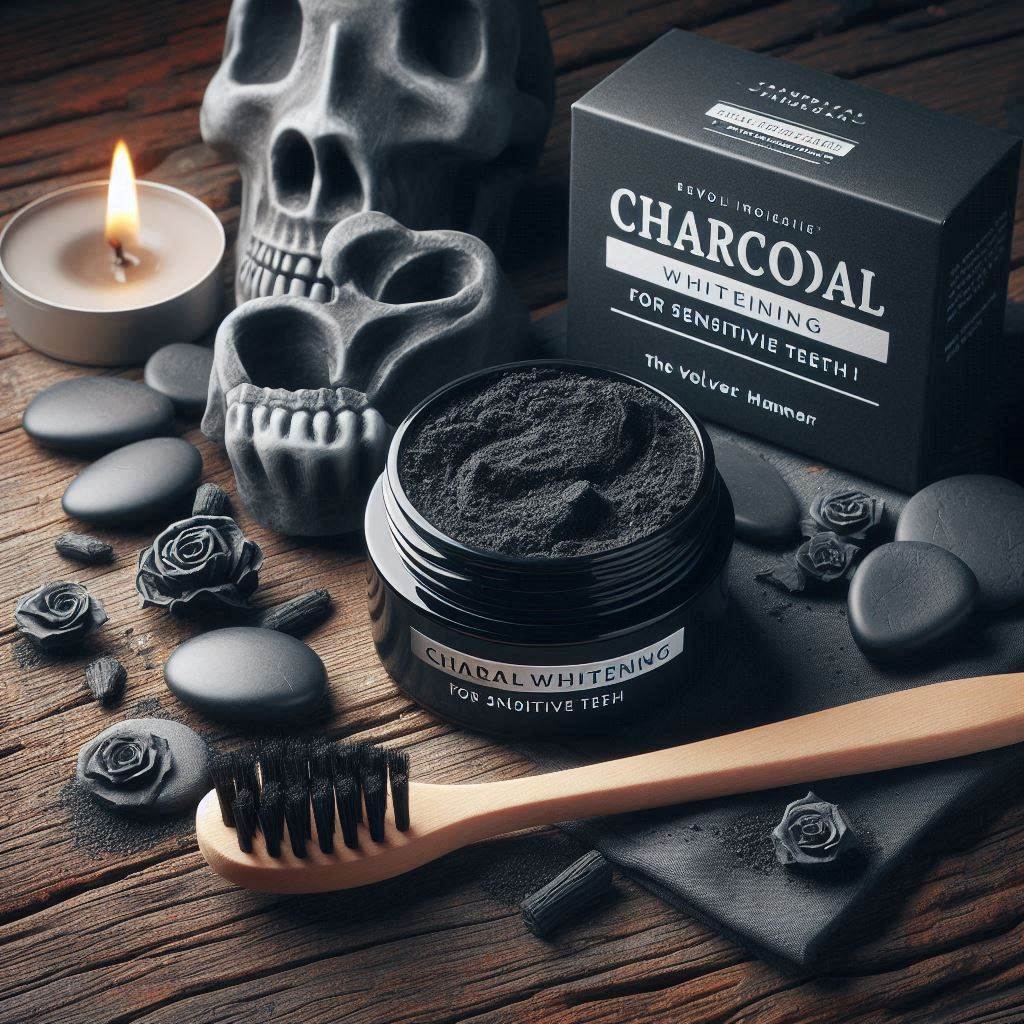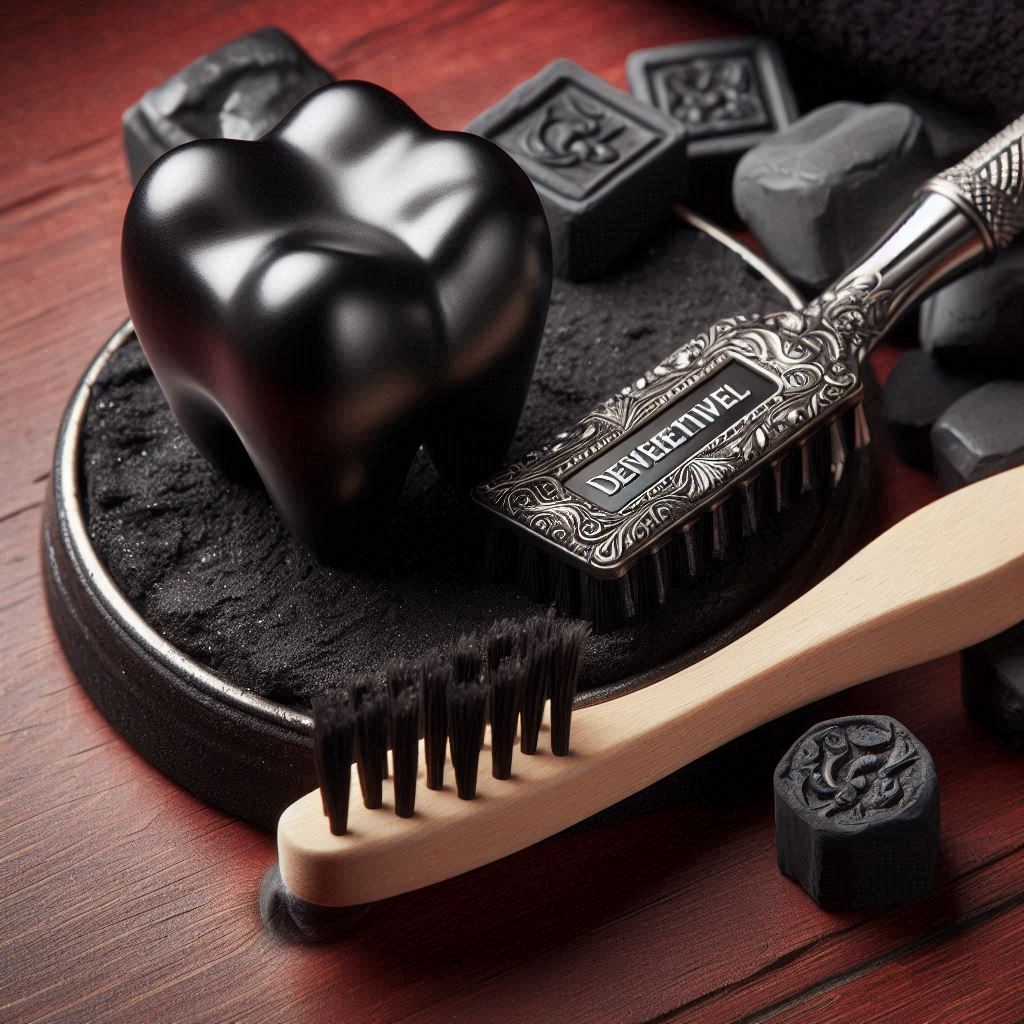Picture a knight in black armor — mysterious, calm, and quietly powerful. He doesn’t roar or charge with fury. Instead, he steps forward with precision, cleansing the battlefield without causing a storm. That knight, for your smile, is activated charcoal — the quiet champion of teeth whitening for sensitive teeth.

When most people think of charcoal, they think of fire, grilling, or something raw and gritty. But in the world of oral care, activated charcoal takes on a new identity — a detoxifying, stain-lifting agent that walks the line between strength and sensitivity. It’s the velvet hammer of dental beauty — strong enough to remove the marks of coffee, tea, and time, yet gentle enough not to disturb the tender nerves beneath your gums.
Why Sensitive Teeth Need a Different Kind of Whitening
Imagine your teeth as a vintage porcelain vase — beautiful, valuable, but a little fragile from years of exposure. Whitening such delicate enamel with harsh bleaches is like scrubbing that vase with a wire brush. Sure, it might look cleaner, but it risks chipping, cracking, or dulling what made it special in the first place.
That’s the dilemma with sensitive teeth — they crave brightness but cannot handle brutality. This is where charcoal whitening for sensitive teeth becomes more than a trend; it becomes a tailored solution.

The Gentle Power of Black Dust
At first glance, brushing your teeth with black powder seems counterintuitive. Shouldn’t whiteness come from something white? But that’s the paradoxical charm of charcoal — like a moonless night that clears your vision, it uses its darkness to reveal your teeth’s natural light.
Activated charcoal binds to surface stains through a process called adsorption — a kind of magnetism for toxins and discoloration. It doesn’t penetrate deep into your enamel or cause sensitivity spikes like peroxide-based whiteners. Instead, it hovers gently at the surface, absorbing the buildup left behind by your favorite foods and beverages.
This makes it a perfect ally in the quest for teeth whitening for sensitive teeth — offering a stain-lifting cleanse without the sting.
Charcoal Products Crafted for Comfort
Not all charcoal is created equal. Some formulas are gritty, harsh, and unrefined — like sandpaper on silk. But charcoal products designed specifically for sensitive teeth are carefully crafted with ultra-fine powder, soothing botanicals, and enamel-safe ingredients.
These products combine natural strength with modern sensitivity science. Some even include coconut oil, bentonite clay, or calcium carbonate to balance abrasiveness and protect your enamel.
So instead of a jarring whitening experience, you get a detoxifying ritual — like polishing silverware with a velvet cloth rather than steel wool.
In your daily brushing routine, swap your standard toothpaste for a charcoal formula two to three times a week. It’s not a race — charcoal whitening is a slow-burn method. Results appear gradually, but without discomfort. You’ll notice stains fading and a subtle glow returning to your smile — all without the electric shocks of sensitivity.
Many users combine charcoal paste with a desensitizing toothpaste, alternating between days to keep nerves calm and enamel polished. This balanced approach defines the essence of teeth whitening for sensitive teeth — not just whitening, but whitening wisely.
A Smile Reborn, Not Reshaped
Charcoal doesn’t pretend to bleach your smile into artificial perfection. It simply reveals the beauty that’s been hiding under surface stains. For those with sensitive teeth, it’s not just about achieving whiteness — it’s about doing so without fear.
So, if you’ve been sidelined from whitening due to pain, tingling, or gum recession, it’s time to let the black knight do his work. With every gentle brush, charcoal whispers to your teeth: You can shine without suffering.
Because in the world of teeth whitening for sensitive teeth, gentleness isn’t a compromise — it’s the secret weapon.


